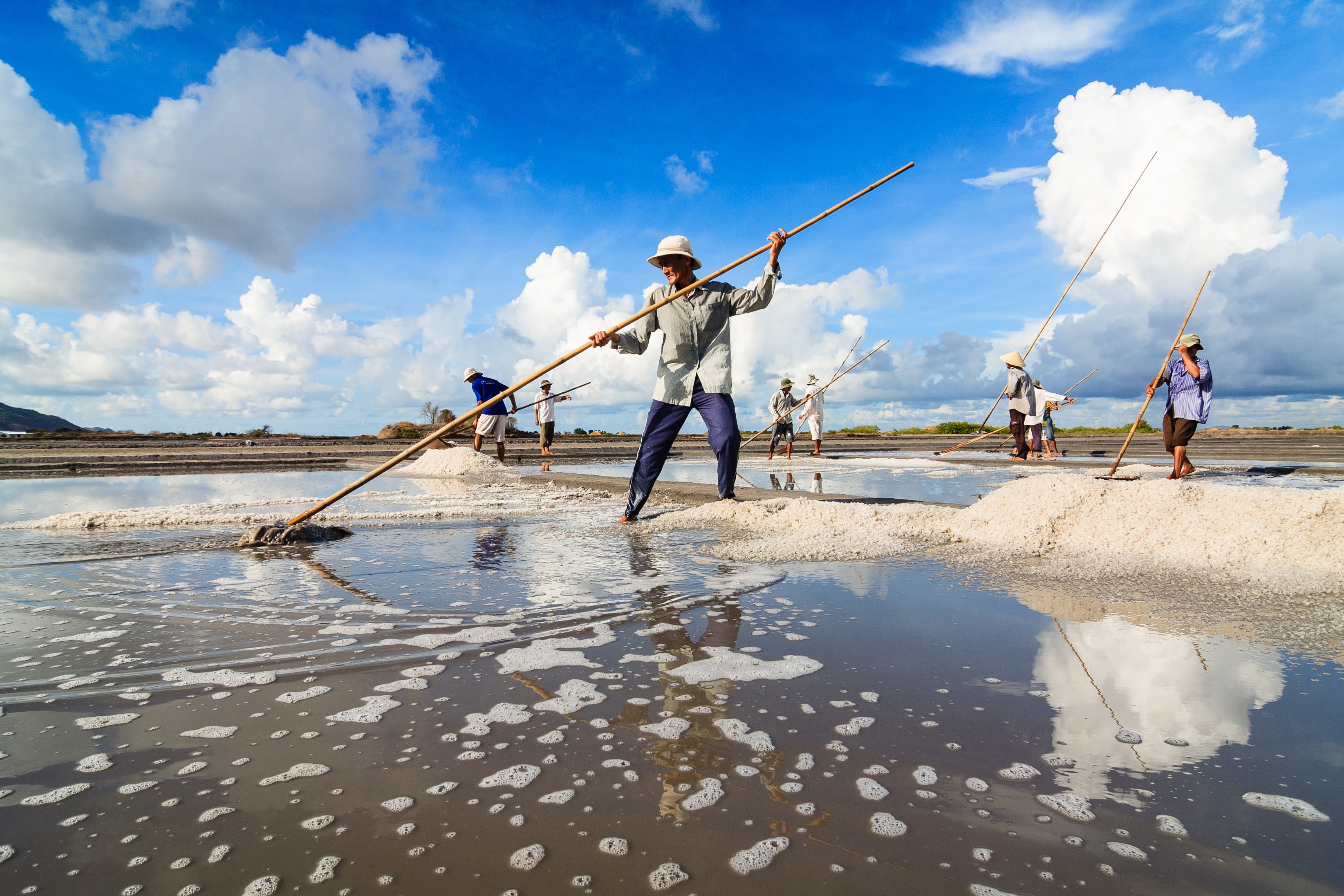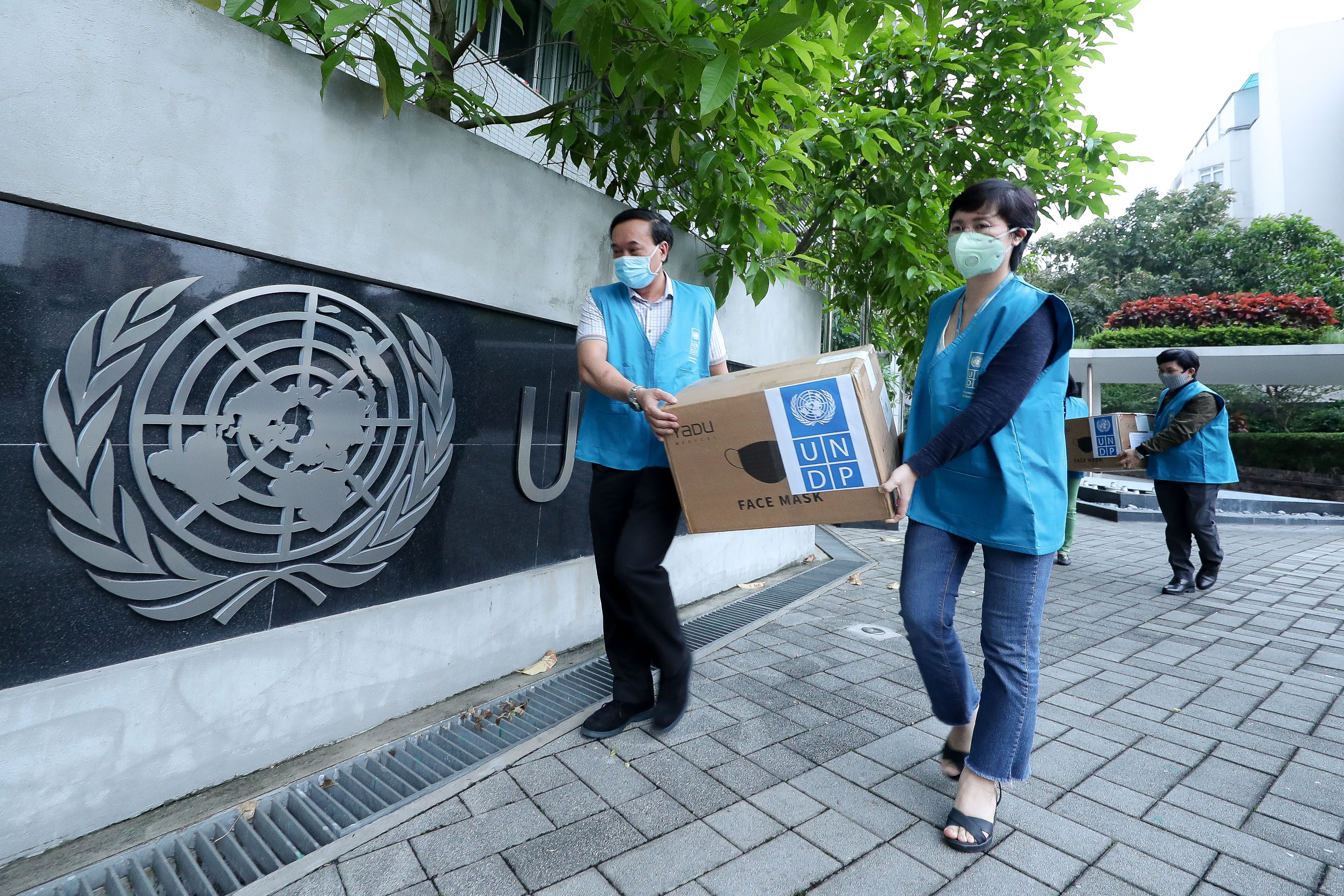Waste management projects line up to address Việt Nam’s white pollution

Workers collectors in Hạ Long Bay. — VNA/VNS Photo
As published in Viet Nam News on 6 June 2020
QUẢNG NINH — A community-based waste management project aiming to scale up classification and foster green investment was launched on Monday in the northern coastal province of Quảng Ninh.
The project, called “Scaling Up a Socialised Model of Domestic Waste and Plastic Management in 5 Cities” (DWP5C), will be implemented in Quảng Ninh, Đà Nẵng, Bình Định, Bình Thuận and Bình Dương in a joint effort by UNDP Việt Nam, the Norwegian Ministry of Foreign Affairs and Việt Nam Administration of Seas and Islands.
Local organisations, including the Farmer’s Union and Women’s Union, will work closely with people and waste workers to promote green habits of waste segregation, collection and recycling as well as expand markets for secondary materials.
Nguyễn Quế Lam, Deputy Director-General of the Việt Nam Administration of Seas and Islands, said poor management, limited waste treatment capacity and low public awareness on environmental problems were responsible for worsening plastic pollution in Việt Nam.
“Việt Nam is ranked fourth globally in terms of largest marine plastic generators,” he said.
“Only 14 per cent of some 1.8 million tonnes of plastic waste is sorted for recycling by scrap collectors”.
Lâm expressed his expectation for the project in terms of “bringing environmental and socio-economic benefits to vulnerable groups and to the country as a whole”.
UNDP Việt Nam Resident Representative Caitlin Wiesen emphasised the significance of environmental incentives to help the country efficiently tackle white pollution and embrace opportunities to move its recycling industry forward.
“In line with the circular economy approach Việt Nam is advancing, there is a tremendous opportunity for Việt Nam to become a leader in the recycling and recovery market,” she said.
“New technologies and innovations offer a promising avenue to “close the loop” by recovering materials and thereby reducing our need to extract more resources.
“The project’s practicality lays on the close collaboration between local authorities and people. Each locality will have their own approach and adaptation in conducting the project.”
In Quảng Ninh Province solely, the project has cost nearly US$287,500 with $109,000 sponsored by Global Environment Facility and UNDP and the rest allocated from the local budget.
In 2019, PM Nguyễn Xuân Phúc took a bold step to adopt a national action plan, committing to reduce marine plastic litter by 50 per cent in 2025 and 75 per cent in 2030.
“Plastic waste does not know borders. It travels across our seas, rivers and deltas, impacting all societies and economies,” said Wiesen.
“We also need to further enhance harmonised policy packages across ASEAN countries. This includes aligning on materials and packaging types by promulgating and enforcing pan-ASEAN standards, and sharing and financing research and development in alternative materials and recycling technologies.”
On the same day, “Ending Plastic Pollution Innovation Challenge” (EPPIC) was launched to find new technology solutions for plastic pollution in coastal areas of Việt Nam, Thailand, Indonesia and the Philippines. The project’s first phase in 2020 will take place in Việt Nam’s Hạ Long Bay and Thailand’s Koh Samui.
Applications will be opened for all ASEAN citizens on June 25. — VNS

 Locations
Locations













